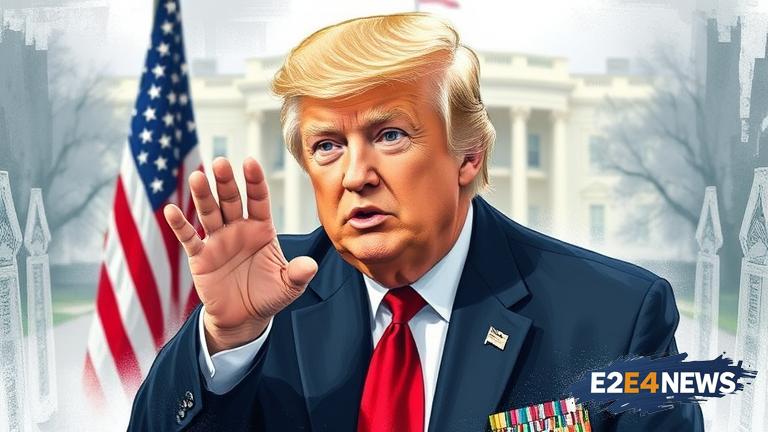The Trump administration’s decision to freeze education grants has sent shockwaves throughout the education sector. The move, which was announced recently, has been met with widespread criticism from educators, students, and lawmakers. The freeze affects a range of programs, including those that support low-income students, students with disabilities, and those pursuing careers in teaching. The administration has cited budget constraints as the reason for the freeze, but critics argue that it will have a devastating impact on already underfunded schools. Many educators and students are concerned that the freeze will limit access to educational resources and opportunities, particularly for marginalized communities. The freeze has also raised concerns about the administration’s commitment to education and its priorities. Some lawmakers have vowed to fight the freeze, arguing that it is a short-sighted decision that will have long-term consequences for the country’s education system. The freeze is part of a broader effort by the administration to reduce spending on education, which has been a target of criticism from educators and lawmakers. The administration has proposed significant cuts to education funding in its budget, which has been met with resistance from Congress. Despite the controversy, the administration has defended its decision, arguing that it is necessary to reduce the national debt and prioritize other areas of spending. However, critics argue that the freeze will ultimately harm the economy and society as a whole, by limiting access to education and reducing the competitiveness of the US workforce. The freeze has also sparked concerns about the impact on student loan debt, which is already a major issue for many students. Some educators have argued that the freeze will make it even harder for students to afford college, which will exacerbate the student loan debt crisis. The administration’s decision has also been criticized for its lack of transparency and consultation with educators and stakeholders. Many educators and lawmakers have expressed frustration that they were not consulted or informed about the freeze before it was announced. The freeze has also raised concerns about the administration’s priorities, with some arguing that it is more focused on supporting wealthy donors and special interest groups than on supporting education. Despite the criticism, the administration has shown no signs of backing down, and the freeze is likely to remain in place for the foreseeable future. The controversy surrounding the freeze has highlighted the deep divisions and disagreements over education policy in the US. The freeze has also sparked a wider debate about the role of government in supporting education and the importance of investing in education for the country’s future prosperity. As the controversy continues to unfold, it remains to be seen how the freeze will ultimately impact the education sector and the students it serves. The administration’s decision has sparked a national conversation about the importance of education and the need for increased funding and support. The freeze has also highlighted the need for greater transparency and accountability in education policy, and the importance of consulting with educators and stakeholders before making major decisions. Ultimately, the freeze has raised important questions about the administration’s priorities and its commitment to supporting education, and has sparked a wider debate about the future of education in the US.
